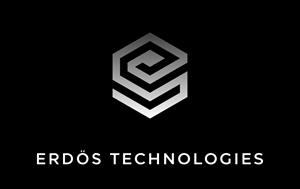Ramsey Theory Group and Erdos Technologies CEO Dan Herbatschek Identifies the Five Most Promising Frontiers of Artificial Intelligence and Separates Hype from Hard Reality
As the CEO and Founder of several AI-driven companies, CEO Dan Herbatschek issues a statement on where the AI industry stands as it enters a new phase of maturity—and identifies the most promising frontiers.
NEW YORK, Oct. 10, 2025 (GLOBE NEWSWIRE) -- Dan Herbatschek, CEO of Erdos Technologies – a division of Ramsey Theory Group, today released a formal statement on the state of artificial intelligence as the industry approaches 2026—outlining what is hype, what is truly transformative, and what frontiers of research hold the most promise for the years ahead.
Herbatschek’s remarks come amid record global investment in AI infrastructure, surging enterprise adoption, and a growing public debate over the technology’s real limits and long-term value.
What’s Hype—and Why It Matters Anyway
“AI right now feels like electricity in the early 1900s,” said Dan Herbatschek. “Everyone knows it’s transformative, but few have truly rewired their systems to harness it.” According to Herbatschek, much of the public excitement stems from two overlapping narratives: the myth of general intelligence and the practical revolution of generative AI.
“Media headlines suggest we’re on the verge of thinking machines,” he said. “But even the most advanced multimodal foundation models do not understand the world—they are pattern recognizers with extraordinary breadth but limited depth. They imitate reasoning without reasoning about what they imitate.”
Generative AI, he noted, has launched a creative and commercial gold rush. “It is a phenomenal accelerant, but not yet a productivity revolution. The bottleneck is not content creation—it is judgment, context, and verification.”
Still, Herbatschek stressed that hype plays a role: “Hype is not meaningless. It is a mirror of our aspirations. But hype without deployment discipline burns capital faster than it creates value.”
Herbatschek cited three areas he believes are driving measurable gains today:
- Automation of Reasoning Tasks: Companies are now automating cognitive labor—summarizing reports, reviewing legal documents, maintaining codebases—with 20–50% productivity improvements where humans and AI are optimally looped together.
- Data-Driven Decision Pipelines: Real value comes when AI connects to operational data—logistics, finance, healthcare—not just chat interfaces. Decision-support systems built on both structured and unstructured data are changing enterprise performance.
-
AI as Infrastructure: AI is evolving into an invisible layer of enterprise infrastructure—copilots in every app, knowledge engines that preserve institutional memory, observability tools that monitor and correct codebases.
“In short,” Herbatschek summarized, “AI’s power lies in invisible integration, not dazzling conversation.”
The Real Limitations
Herbatschek also emphasized that AI’s growth comes with hard ceilings—technical, economic, and philosophical.
“Training state-of-the-art models now costs tens of millions in compute and megawatts in energy. Scaling alone is becoming unsustainable,” he said. “We’re seeing early signs of innovation in sparse architectures and neuromorphic computing, but the energy curve remains steep.”
He described current models as “brilliant but brittle generalizers” —strong on pattern recognition, weak on abstraction. “They see correlation, not causation. That is why they can summarize legal text flawlessly and still misinterpret a clause.”
Herbatschek added that human factors are just as limiting: “The hardest part of AI is not the modeling—it is the embedding. Aligning systems with human intent, culture, and governance is the frontier we have not crossed.”
The Most Promising Frontiers of Research
Erdos Technologies’ CEO highlighted the five areas where he believes researchers are “moving beyond scale toward substance”:
- Hybrid and Modular AI: Combining neural perception with symbolic reasoning could yield systems that generate and test hypotheses—a true step toward reasoning AI.
- Lifelong and Continual Learning: Future models will adapt in real time rather than being frozen snapshots. This will make AI more contextual, efficient, and durable.
- Agentic AI and Scientific Discovery: Self-looping AI agents that can read, simulate, and hypothesize could redefine research productivity—especially in chemistry, materials, and medicine.
- Efficiency and Democratization: Techniques like model pruning and mixture-of-experts will lower costs and expand global access to advanced AI.
-
Safety and Interpretability Layers: Think of these as circuit breakers for cognition—modular safety systems that ensure AI outputs meet standards of truth, fairness, and compliance.
The Shape of What’s Coming
Looking ahead, Herbatschek sees a major shift in the AI ecosystem.
“The next few years will mark a pivot from scaling up to scaling wisely,” he said. “Models will become smaller, more specialized, and deeply embedded in real workflows. AI will move from consumer novelty to industrial infrastructure.”
He concluded, “If 2020 through 2023 was the age of capability explosions, then 2025 through 2030 will be the era of stability engineering—making intelligent systems reliable enough to truly build upon.”
About Erdos Technologies
Erdos Technologies, a division of Ramsey Theory Group, specializes in building the technologies that power ideas. By combining domain expertise, strategic consulting, and custom software engineering, the company delivers scalable systems that align with businesses' strategic goals. Erdos supports organizations by enhancing operational efficiency, elevating customer relationships, managing resources effectively, and driving innovation through technology. Visit https://erdostechnologies.com/ to learn more.
Media Contact
Ria Romano, Partner
RPR Public Relations, Inc.
Tel. 786-290-6413
A photo accompanying this announcement is available at https://www.globenewswire.com/NewsRoom/AttachmentNg/220811c8-0439-4517-8629-eb15f08a17a7

Legal Disclaimer:
EIN Presswire provides this news content "as is" without warranty of any kind. We do not accept any responsibility or liability for the accuracy, content, images, videos, licenses, completeness, legality, or reliability of the information contained in this article. If you have any complaints or copyright issues related to this article, kindly contact the author above.


